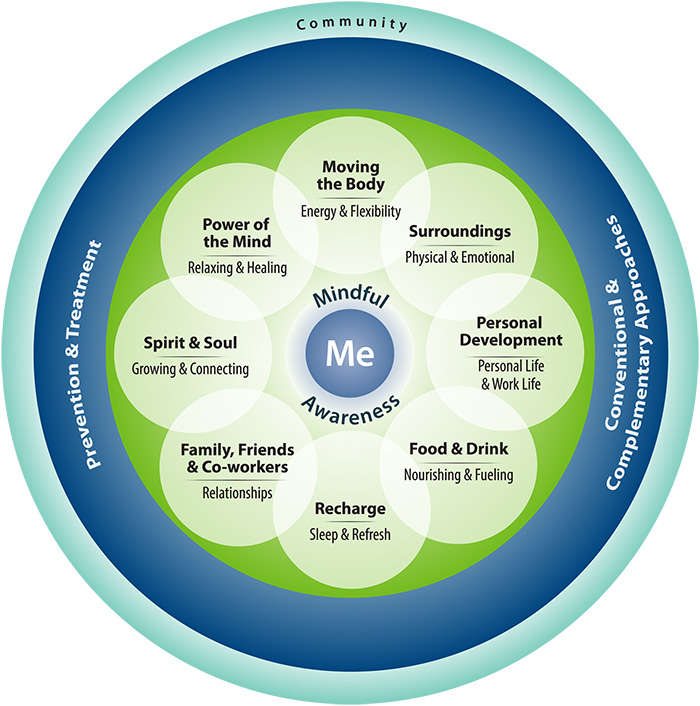 |
Spiritual Support for Veterans Re-entering the Community after IncarcerationVeterans’ Perspectives highlights research conducted by HSR&D and/or QUERI investigators, showcasing the importance of research for Veterans – and the importance of Veterans for research. In the March-April 2023 Issue:
|
Introduction
This project is part of the Bridge QUERI Program which improves health outcomes by expanding access to prevention, treatment, and support services for Veterans.
Spirituality is one of eight health domains within the Whole Health approach, a national VA priority for delivering healthcare. The “Spirit and Soul” health domain conceives of spirituality as a way to find meaning or purpose in something larger than oneself, varying in definition and experience across individuals, and including but not being wholly defined by organized religion. Despite VA’s focus on Whole Health, there exists no real evaluation of spiritual needs among Veterans re-entering civilian life from incarceration (re-entry Veterans), nor are there modes of delivery for meeting such needs. Considering that spirituality as a coping mechanism can be protective against repeat offenses1 and substance use2 for individuals who have experienced incarceration and substance abuse3,4 – and thus support the success of community re-entry - this evaluation gap within VA is important to address. Thus, the quality improvement Bridge QUERI program’s Post-Incarceration Engagement project (PIE) evaluated the need for a spiritual intervention for re-entry Veterans. Project investigators also explored the potential for delivering such an intervention through a VA-based mobile phone application, though findings related to this second goal are not included in this brief report. 
The ProjectCo-Lead Investigator Jennifer Palmer, MS, PhD, conducted individual telephone conversations with six Veterans and six VA staff. Recently but formerly incarcerated Veterans were invited to participate during a social hour for re-entry Veterans held at a VA Medical Center (VAMC). Staff known to the project team were invited to participate via email; these staff included peer support specialists and social workers within Health Care for Re-entry Veterans (HCRV) and/or Veterans Justice Outreach (VJO) programs. Conversational questions inquired about personal definitions of spirituality, presence/absence of spiritual needs in re-entry Veterans, suggestions for VA-based spiritual interventions for re-entry Veterans, and perceived implementation facilitators and barriers to such interventions. Project investigators used rapid qualitative analytic techniques to identify common and unique themes across the 12 transcribed conversations. FindingsDefining spirituality Veterans and staff indicated respect for spirituality as a highly individualized experience. "I mean I respect people who, you know, if you wanna have religion and you wanna praise God… you know, that's what America's all about… You do you." - Veteran #1 “I appreciate…spirituality meaning different things to different people…for the Veterans that we serve, their vantage point of spirituality is very inclusive and means many different things.” – Staff Member #5 Positive impacts Veterans and staff described numerous positive impacts related to re-entry Veterans’ spirituality. These included personal growth, transformation and healing, a sense of peace, security, gratitude, or hope, motivation to be a better person, and social connection. Of note, no instances of negative impacts were mentioned. “…I've grabbed a hold of this and I'm never gonna let go of it…I was a career criminal for 40 years. I spent 32 years locked up. …this is the only thing that ever seemed to work for me… it's just a beautiful thing.” - Veteran #2 “…All of their friends… are still incarcerated… (H)aving a spiritual base could help them to… create this new level of community that they didn’t have before.” - Staff Member #3 Tensions around primacy Veteran and staff perspectives reflected tensions around the extent to which spiritual needs are primary to Veterans during re-entry. Some viewed “basic needs” (e.g., housing, food security) as primary over spiritual needs: “…I don’t know if it’s spiritually, it’s – what they need is housing often, they need money, they need food, they may need mental health treatment.” - Staff Member #2 Some viewed spiritual needs as essential, however: “…you need it in your life like you need water and food.” - Veteran #3 Some viewed basic needs and spiritual needs as interactive with one another:
Tensions around the primacy of one set of needs over another can lead to lost opportunities in fully meeting re-entry Veterans’ needs: “I don't think we give them the opportunity to [find spiritual meaning] sometimes…we're really [focused on] seeing them housed…” - Staff Member #5 Existing supports, their limitations, and suggested improvements
Recommendations from the Project Team
The contents of this report do not represent the views of the U.S. Department of Veterans Affairs or the United States Government. References:
|